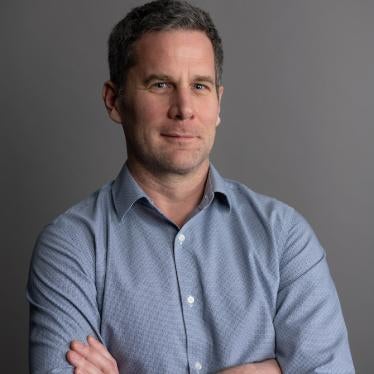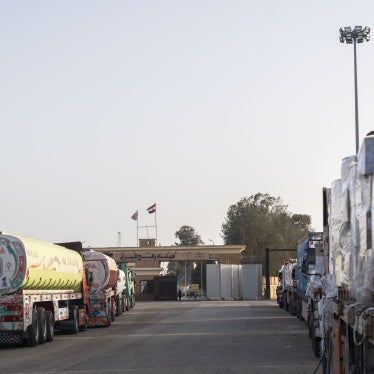It's been a long, painful year for Syria's 6 million refugees, as well as for Jordan, Lebanon and Turkey, which are buckling under the pressure of hosting three quarters of them. But June 21, the longest day of the year, turned out to be particularly drawn out for a group of refugees who have been stuck in the desert at the Jordanian border.
Early that morning, the Islamic State in Iraq and Syria (ISIS) slammed a pickup truck packed with explosives into a Jordanian military base on the Syrian border, killing at least six members of the country's security services. Within hours, the army declared the area a "closed military zone" in which "any vehicle and personnel ... mov[ing] without prior coordination" would be "treated as enemy targets and ... without leniency."
At first glance, the response seemed justified. But there was a major flaw. Just a kilometer from the attack, some 60,000 Syrians, themselves fleeing ISIS and the violence in their war-ravaged country, are stuck in appalling desert conditions, waiting to reach safety in Jordan. The medical charity Doctors Without Borders says half of them are children.
Before ISIS unleashed its carnage last week, Jordan had let aid agencies truck water, food and medical aid to the asylum seekers and had slowly admitted some of them into a closed camp for security and refugee screening. But since the attack, the authorities have reportedly blocked all aid -- save for a limited amount of water -- and no one has been transferred to the camp.
The result? Humanitarian aid workers no longer have access to the 60,000 Syrians, who are now cut off from the outside world. Yet such assistance is essential to the survival of this group. Doctors Without Borders says that in the five weeks before the attack, when aid was still getting through, it had treated 3,500 people, including those with skin diseases, over 200 children suffering from malnutrition and diarrhea, and 450 pregnancy-related cases. Imagine the scene now, after 10 days without aid.
Jordan is not alone in shutting down its border to Syrians. Human Rights Watch has documented how Turkey has pushed back thousands of Syrian asylum seekers over the past year, with reports of it shooting dead and injuring some as they try and reach safety. In fact, 165,000 would-be refugees are now trapped on the wrong side of the Syrian-Turkey border in camps that have been hit by Syrian airstrikes and overrun by ISIS.
Lebanon, too, has severely limited the entry of Syrians fleeing the atrocities. The European Union's efforts to close its own borders to asylum seekers and refugees has sent a powerfully negative message to countries in the region that are already shouldering the lion's share of responsibility for Syrian refugees.
It's true that Jordan has already taken in 650,000 registered Syrian refugees, adding an astonishing 10% to its population. Compare that to the 0.2% added last year to the European Union's population as a result of the influx that was widely characterized as a "refugee crisis."
Jordanian officials have repeatedly said they need more international help to cope with the numbers, adding after the June 21 attack that the 60,000 trapped at Jordan's closed border are an international problem and not the responsibility of Jordan.
It is actually a shared responsibility; no country should be off the hook. Human Rights Watch and others haverepeatedly called for other countries to increase their assistance to Jordan, resettle greater numbers of Syrian refugees living in Jordan, and respond more generously to the U.N. refugee agency's budget in Jordan, which is currently only funded at 29%.
But by blocking aid and trapping Syrians at its border, Jordan is punishing children, women and men fleeing the very same atrocities that killed Jordan's soldiers. While the world clearly has to do more to help Jordan, the authorities should not be putting refugees' lives at risk by punishing them for the acts of the very forces they have fled, or by using them as bargaining chips for more help.









